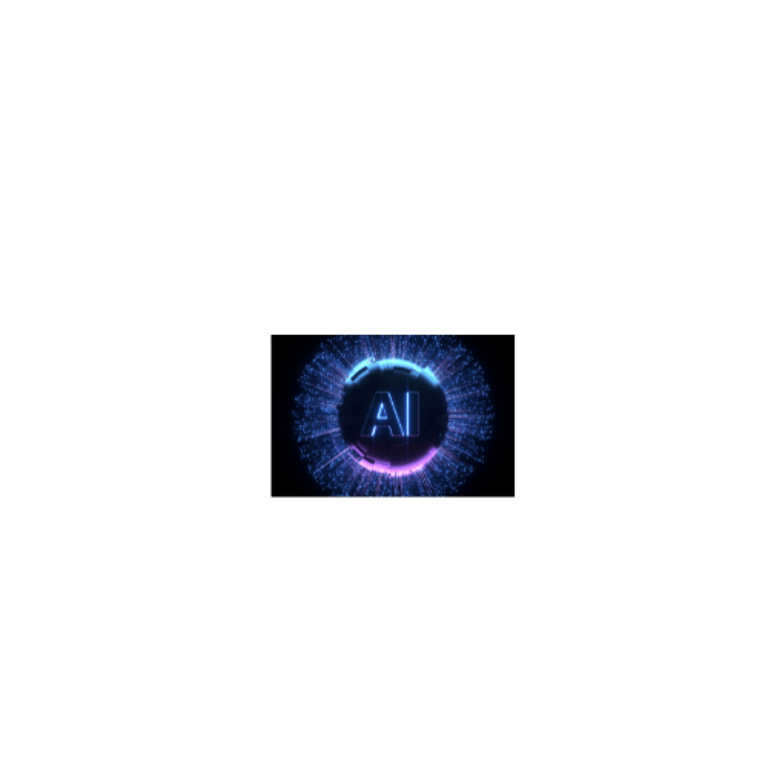Why Law Firms Are LAZY about AI Tools
Lawyers need to WAKE up and learn about vetting their AI tools before falling for typical vendor demo sales pitches!
11/9/20256 min read


🚨 Law Firms Are Failing at AI Vendor Vetting—And It's About to Cost Them Everything 🔥
Let's talk about the elephant in the legal conference room 🐘
Law firms are buying AI tools like they're shopping on Amazon Prime. Click, buy, deploy. No questions asked.
And when things go wrong—when client data gets leaked, when AI produces biased results, when regulators come knocking—those same firms act shocked 😱
Here's the truth: You're not vetting your AI vendors. And that laziness is about to blow up in your face.
📦 The "Plug and Play" Fantasy
Here's how most law firms buy AI tools:
Partner hears about a cool AI tool at a conference 🎤
Vendor gives a slick demo 💻
Firm signs the contract ✍️
IT deploys the tool 🚀
Everyone assumes it's fine 🤷
What's missing? Everything that actually matters.
No one asks:
Where does this data go? 🌐
Who can access it? 🔐
What is the AI trained on? 🧠
Does it comply with state regulations? ⚖️
What happens when we terminate the contract? 🗑️
Firms treat AI tools like staplers. Buy it, use it, forget about it.
But AI isn't a stapler. It's a high-risk, high-stakes technology that processes confidential client information 📂
🔥 Why This Is Dangerous Right Now
California's AI regulations took effect October 1, 2025 📅
Colorado's comprehensive AI law goes live June 30, 2026 📆
The EU AI Act is already in force globally 🌍
Translation? If your AI tool creates discriminatory outcomes, violates data privacy laws, or fails to meet transparency requirements, YOU are liable 💥
Not the vendor. You.
Because you deployed it. You used it on client matters. You failed to do due diligence.
And "we didn't know" won't be a defense 🛑
The Excuses Law Firms Love to Make
Let me guess what you're thinking:
"But the vendor said it's secure!" 🛡️
Cool. Did you verify that? Did you ask for SOC 2 or ISO 27001 certifications? Did you review their data processing agreements?
Or did you just take their word for it?
"We don't have time for all that!" ⏰
You have time to bill 2,000 hours a year. But you don't have time to protect client confidentiality?
Make it make sense.
"IT handles that stuff." 💻
No, they don't. IT evaluates technical infrastructure. They don't evaluate legal, ethical, and regulatory compliance—which is YOUR job.
"The contract has an indemnity clause." 📝
Great! So when your client sues you for malpractice, you can try to recover from the vendor. After you've already paid damages, lost the client, and destroyed your reputation.
That's not risk management. That's wishful thinking 🎲
🧐 What "Vetting" Actually Looks Like
Real AI vendor vetting isn't a 20-minute call. It's a comprehensive due diligence process that covers:
🔐 Data Security & Confidentiality
✅ Does the vendor have SOC 2 Type II, ISO 27001, or HIPAA compliance?
✅ Where is client data stored (geographically and architecturally)?
✅ Is data encrypted in transit and at rest?
✅ Who has access to client data (vendor employees, subcontractors, third parties)?
✅ Does the vendor use client data to train AI models?
✅ What happens to data when the contract terminates? (Certified deletion? Return?)
Red flag 🚩: Vendor can't or won't answer these questions clearly.
⚖️ Regulatory Compliance
✅ Does the vendor comply with California, Colorado, and other state AI regulations?
✅ Does the tool meet EU AI Act requirements if you have international clients?
✅ Can the vendor provide bias audits or impact assessments for high-risk AI systems?
✅ Does the tool log decisions for audit purposes?
✅ Can the vendor support your disclosure obligations to clients and regulators?
Red flag 🚩: Vendor says "we're monitoring regulatory developments." That means they're not compliant yet.
🧠 AI Model Transparency
✅ What data was the AI trained on?
✅ Does the training data include biased or problematic sources?
✅ How does the AI make decisions (explainability)?
✅ What are the known error rates or limitations?
✅ How often is the model updated, and how are updates vetted?
Red flag 🚩: Vendor calls it a "proprietary black box" and refuses to explain how it works.
📊 Performance & Accountability
✅ What are the service level agreements (SLAs) for accuracy, uptime, and error rates?
✅ How does the vendor handle errors or hallucinations?
✅ Who is accountable when the AI produces bad outputs?
✅ Does the vendor carry professional liability insurance?
✅ What indemnification and liability protections exist in the contract?
Red flag 🚩: Contract says vendor isn't liable for anything. Ever.
🚪 Exit Strategy
✅ What happens to your data if the vendor goes out of business?
✅ Can you export data in a usable format?
✅ How long does data deletion take after termination?
✅ Are there transition assistance provisions?
✅ Do confidentiality obligations survive termination?
Red flag 🚩: No exit plan. Just vibes and hope.
🛠️ The AI Vendor Vetting Checklist You Need Right Now
Here's what you should be doing before you sign another AI vendor contract:
Phase 1: Initial Qualification 🔍
🔲 Request vendor security certifications (SOC 2, ISO 27001, etc.)
🔲 Review vendor's data privacy policy and terms of service
🔲 Confirm vendor's regulatory compliance (state AI laws, GDPR, etc.)
🔲 Ask for client references from law firms or regulated industries
🔲 Check for any data breach history or regulatory actions against vendor
Phase 2: Technical Due Diligence 💻
🔲 Verify data encryption standards (in transit and at rest)
🔲 Confirm data storage locations and sovereignty compliance
🔲 Evaluate access controls and user authentication protocols
🔲 Review vendor's incident response and breach notification procedures
🔲 Assess AI model explainability and transparency
Phase 3: Legal & Compliance Review ⚖️
🔲 Draft or negotiate a data processing agreement (DPA)
🔲 Include AI-specific contract terms (no training on client data, audit rights, compliance warranties)
🔲 Clarify IP ownership of AI outputs
🔲 Add indemnification provisions for AI-related claims
🔲 Ensure termination clauses include certified data deletion
Phase 4: Ongoing Governance 📋
🔲 Conduct annual vendor audits
🔲 Review quarterly compliance and bias testing reports
🔲 Track vendor regulatory compliance updates
🔲 Monitor vendor for security incidents or breaches
🔲 Update internal AI use policies as regulations evolve
👥 Who's Actually Responsible for This?
Here's where law firms get it wrong: They think vetting AI vendors is someone else's job.
IT says: "We handle tech security, not legal compliance."
Legal says: "We handle contracts, not tech evaluation."
Partners say: "Someone else is handling it, right?"
Spoiler alert 🎬: No one is handling it.
The right approach? A cross-functional AI governance team 🤝
You need:
Legal counsel to assess compliance, ethics, and contractual risks
IT/Security to evaluate technical infrastructure and data protection
Compliance/Risk to track regulatory obligations and audit vendor performance
Practice group leaders to understand use cases and client impact
This isn't a one-person job. It's an institutional responsibility 🏛️
💰 "But This Sounds Expensive and Time-Consuming!"
You're right. Proper AI vendor vetting takes time and resources 💸
You know what's more expensive?
🔥 A malpractice lawsuit because your AI tool leaked client data
🔥 Regulatory fines for deploying non-compliant AI systems
🔥 Reputational damage when clients find out you were reckless with their information
🔥 Lost business because competitors are doing this right and you're not
The cost of vetting is the cost of doing business responsibly 📈
If you can't afford to vet AI tools properly, you can't afford to use them.
🎯 What You Need to Do This Week
Stop reading this article and take action:
Step 1: Inventory Your AI Tools 📝
Make a list of every AI tool your firm currently uses. Include:
Document review platforms
Legal research tools
Case management systems
Billing software
Email filtering
Contract analysis tools
If it uses automation, machine learning, or "smart" features, it's probably AI.
Step 2: Identify High-Risk Tools 🚨
Which tools:
Process confidential client data?
Make or influence substantive legal decisions?
Affect employment, housing, credit, or other regulated decisions?
Operate without meaningful human oversight?
Those are your high-risk tools. Prioritize them.
Step 3: Start Asking Questions 🤔
Contact your vendors. Use the checklist above. Ask the hard questions.
If vendors can't or won't answer, that's your red flag 🚩
Step 4: Build Your Governance Framework 🏗️
Create:
An AI vendor vetting checklist
A cross-functional AI governance committee
Standard contract language for AI vendors
An AI use policy for attorneys and staff
This doesn't have to be perfect. It just has to exist 📄
Step 5: Train Your People 🎓
Lawyers and staff need to understand:
What AI tools the firm uses
When and how to disclose AI use to clients
What to do if AI produces questionable results
Who to contact with AI-related questions or concerns
You can't govern what people don't understand 🧠
💡 The Bottom Line
Law firms are treating AI vendors like low-risk service providers.
They're not.
AI tools process confidential information, make high-stakes decisions, and create regulatory and ethical obligations.
And if you deploy them without proper vetting, you're gambling with your clients' trust, your firm's reputation, and your professional license 🎲
The AI regulation era is here 🌍
You can either do the work now—or explain to a judge later why you didn't 👨⚖️
